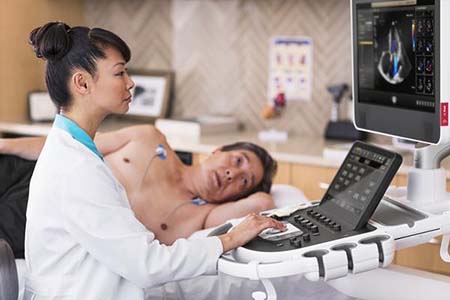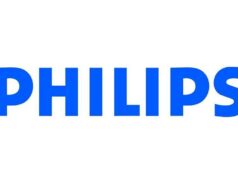
A Philips press release reports both the EPIQ CVx and EPIQ CVxi now include automated applications for 2D assessment of the heart, as well as robust 3D right ventricle volume and ejection fraction measurements—with the aim of making accurate exams faster and easier to conduct. Together, the new applications provide clinicians with the means to confidently evaluate the heart’s function, increasing diagnostic confidence for patients with pulmonary hypertension, congenital heart disease, coronary disease and heart failure.
The AutoStrain LV application, according to the press release, uses “Automatic View Recognition” technology to identify the different views of the heart, designed to provide exceptional visualisation and analysis of left ventricular function. Also available are “AutoStrain LA” and “AutoStrain RV”, which are applications that automate the measurement of left atrial (LA) and right ventricular (RV) longitudinal strain respectively. By creating reliable and reproducible strain measurements for the left ventricle (LV), left atrium and right ventricle, the AutoStrain LV, LA and RV applications support clinicians treating patients with atrial fibrillation, arrhythmia and other complex heart conditions.
The 3D Auto RV application segments, identifies the borders of and aligns the views of the right ventricle, enabling clinicians to carry out the quantification and check the measurements in as little as 15 seconds. These new applications expand on the advanced automation applications already available on the EPIQ CVx platform, including Dynamic HeartModel, which provides a clear vision of the heart’s chambers and how well they are pumping blood—specifically on the left side, where heart failure often begins.
David Handler, general manager of Cardiac Ultrasound at Philips, says: “The complexity of cardiac exams can be a barrier to accessing high-quality care. Philips is addressing this by leveraging artificial intelligence to make echo exams easier, faster and more reproducible. By incorporating advanced automation, there is less variability between scans, leading to accurate treatment decisions that benefit patients. The new release of EPIQ CVx is a major step forward, reducing the number of touches of the system by 21% in each exam, which is equivalent to more than 400 exams each year.”









